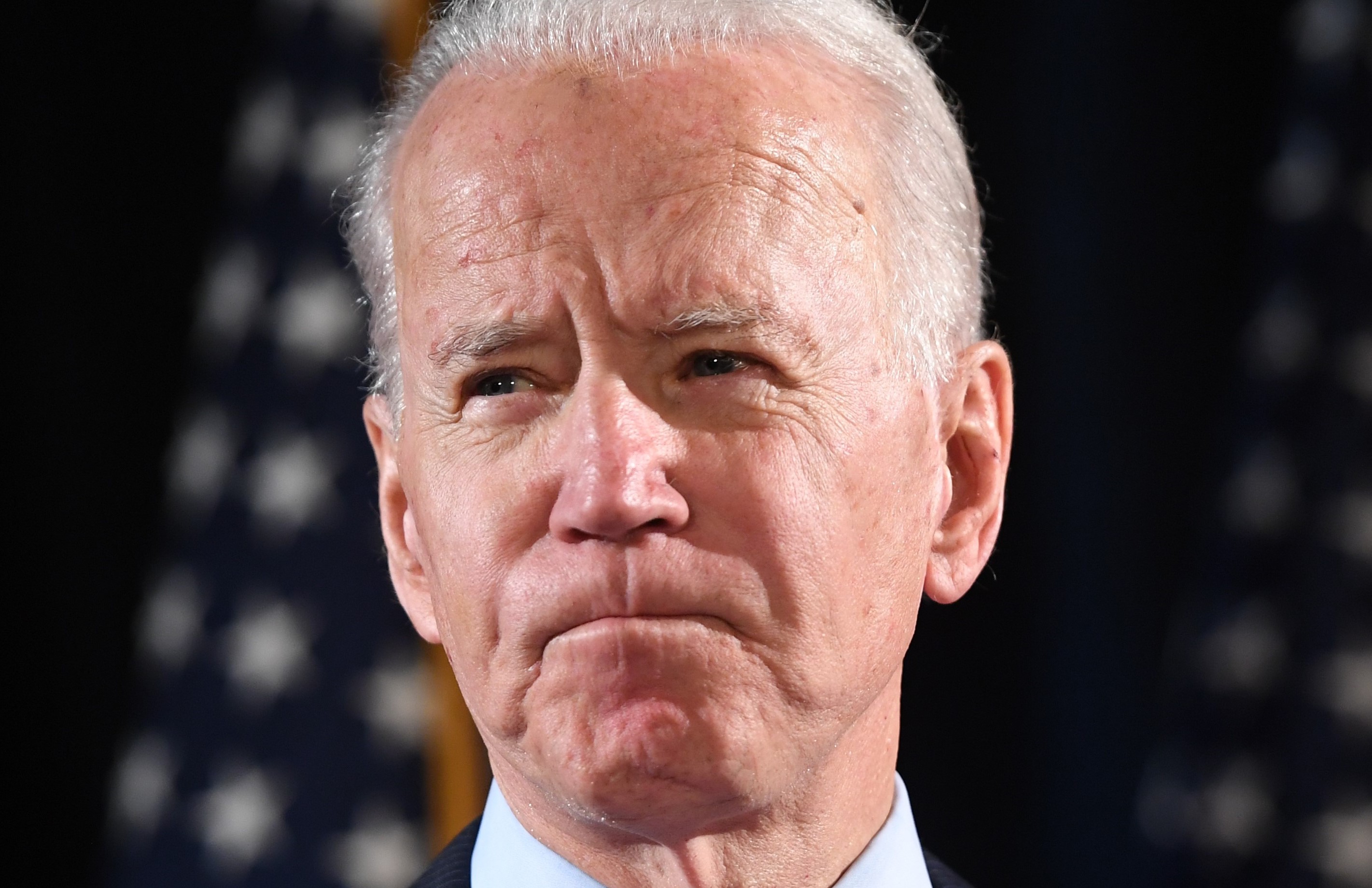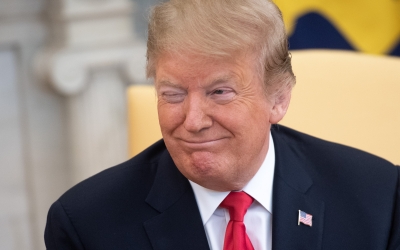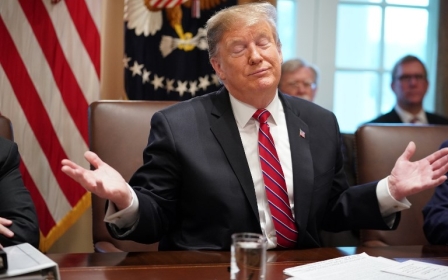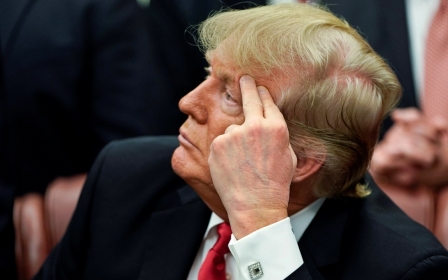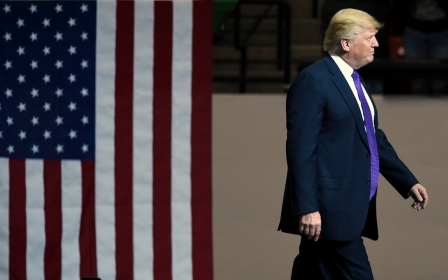How coronavirus is destroying Donald Trump's presidency
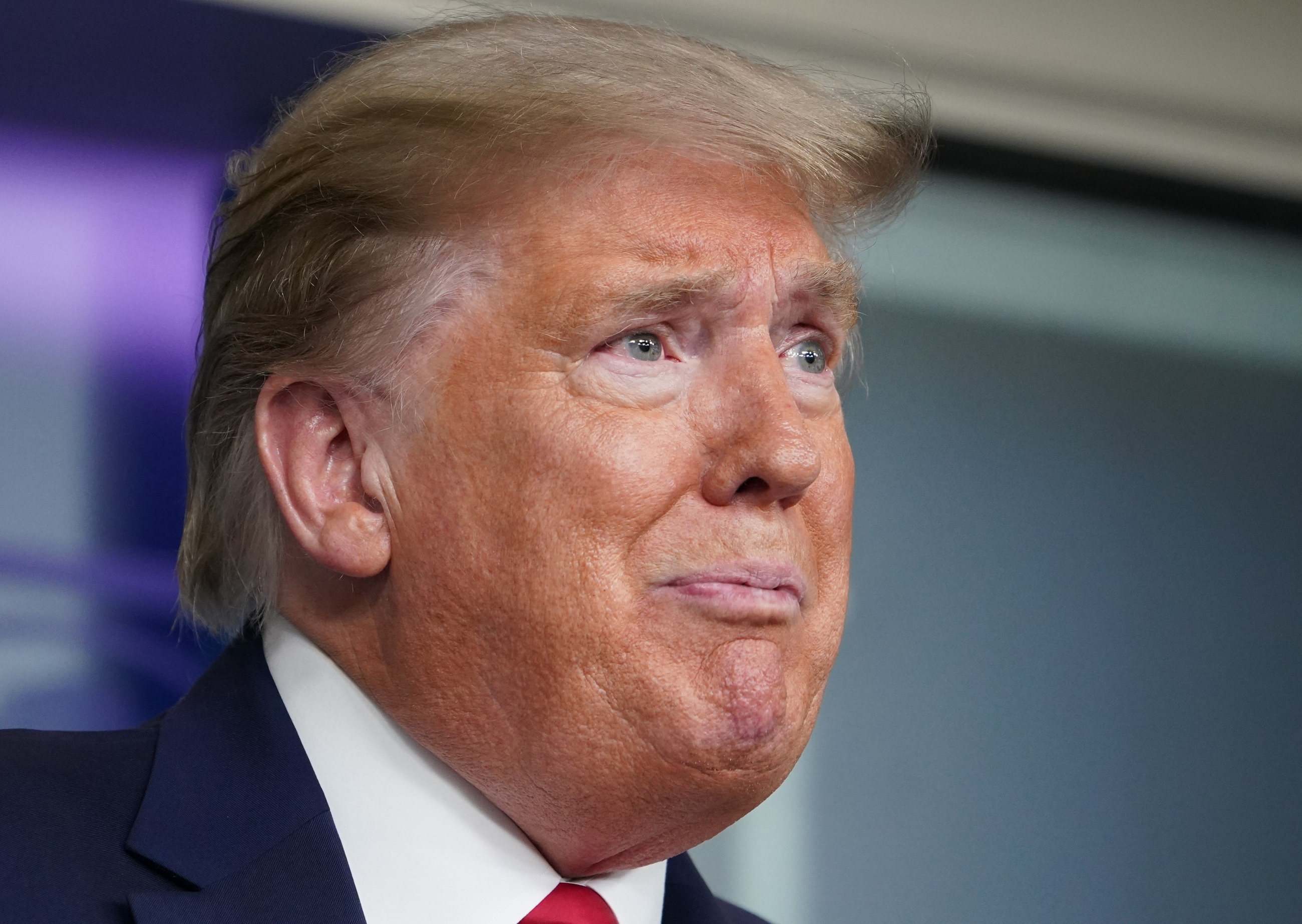
The coronavirus pandemic is on the verge of destroying Donald Trump’s presidency, with momentous consequences not just for the United States but also the world.
Mercifully, Trump himself has tested negative for the virus. But his leadership has proved catastrophic, and public opinion is turning on him.
A recent CNN poll showed his Democratic challenger Joe Biden leading Trump 53 percent to 42 percent among registered voters. In fact Biden has led in every head-to-head poll taken in the last six weeks.
Trump himself has tested negative for the virus. But his leadership has proved catastrophic
Recent polling of all voters has also awarded Biden a powerful advantage; a Real Clear Politics general election poll tracker has the former vice president up 6.4 points over Trump.
Admittedly, in the 2016 elections, Trump showed that he doesn’t need a majority of the popular vote to win. But Biden is already ahead of the president in swing states such as Arizona, Pennsylvania and Wisconsin. He’s neck and neck with Trump in Michigan, one of the rustbelt states that gave Trump victory in 2016 - a state the Republicans must win to have any chance this year.
Biden beats Trump in Florida by 6 points, according to a recent poll conducted by the University of North Florida. If results like these are duplicated in November, Biden will win by a landslide.
The clearest sign yet that the pressure was getting to Trump came at his White House briefing on Tuesday.
The briefing collapsed into near chaos as the president clashed with journalists, and bizarrely claimed that he had "total authority" when it came to public health rules over the virus.
And remember this. In the United States, unlike Europe, the worst effects of the coronavirus pandemic are yet to come.
Worst yet to come
There have been more than 23,000 deaths so far. While each is an awful tragedy, statistically this number is a pinprick for a population of 330 million.
Remember this: In the United States, unlike Europe, the worst effects of the coronavirus are yet to come
The projection is that it is going to get much worse, though it’s guesswork exactly how bad. And it stands to reason that those hardest hit will include Trump's heartland supporters, who have so far stayed loyal.
Working-class people without access to decent healthcare - or any healthcare - will remember Trump’s campaign slogan and decide whether he has made life great for them.
Those who were attracted by Trump’s promise of strength and success will have noted the frightened, confused figure at his briefings, a commander-in-chief who can no longer command himself, let alone preserve and protect the United States.
The president has already been dreadfully complacent at dealing with the problem. According to the latest polls from CBS, only 47 percent believe Trump is handling the crisis well – for the first time the majority of Americans believe he is doing a bad job. The main concerns are a lack of testing and medical equipment and being too slow to act on preventing the virus’ spread.
That’s before we get onto Trump’s irresponsible touting of an unproven malaria drug in fighting coronavirus in the face of scepticism from his own medical expert Dr Anthony Fauci.
No wonder Trump’s sinking in the polls. A symbolic moment came on 23 March when three major networks – ABC, CBS and NBC – turned off the president’s briefing, never to return. What a turnaround!
Political penalties
Until just a few weeks ago, he was a nailed-on, stone-cold certainty to win this November's presidential election. Against him a divided Democratic Party whose likely candidate, Biden, carried serious liabilities: age, apparent confusion, identification with the old-style politics rejected by angry older voters and idealistic new ones.
In Trump’s favour were a booming economy, record employment numbers and hundreds of millions of campaign funding from big billionaire financial backers. Add in Fox News and Trump’s proven campaigning exuberance and this year's election looked like a walkover for the Republicans.
Not anymore it seems.
In one purely practical way, the coronavirus crisis could help Trump. Every American state will have to make hasty new arrangements to allow voters postal or online ballots. For those states controlled by Republicans this will give new opportunities for voter suppression – denying likely Democrat voters the chance to vote at all.
This was a factor in the victories of George W Bush in 2000 and 2004.
But the political penalties of the crisis vastly outweigh this. The coronavirus is about to hit Trump where it hurts him most. The wallet.
It's the economy
The economic statistics are not just horrific. They’re terrifying. Worst of all is the job market. Many are Trump's own people. They believed in him because he gave them prosperity and secured them jobs.
In 1932 the incumbent Republican President Herbert Hoover lost to Franklin Roosevelt in a depression. A more recent incumbent Republican, George H W Bush, was fatally damaged by a much milder recession in 1992, losing to a scarcely known challenger, Bill Clinton. It looks like Trump will have both a depression and a pandemic on his hands.
The economic statistics are not just horrific. They’re terrifying
Many intelligent commentators have argued that coronavirus plays to Trump’s strengths – above all his hostility to globalisation and hatred of China. Trump is already playing the Chinese card and will go on doing so. No wonder, blaming China is Trump’s last hope.
It helped him win the presidency but this low, dishonest tactic won’t enable him to save it.
As the coronavirus hits Republican supporters harder over the coming weeks, life will get more difficult for Trump. He will soon find that even his friends will turn on him.
Trump will soon look like a president on his way out. Meanwhile his state of political health will be monitored closely by his allies in the Middle East, leaders with whom the Trump clan established personal connections.
The Middle East impact
Paradoxically, the US's closest ally in the region is so well embedded in US politics and Congress that Trump's disappearance would have least effect. Israel can seamlessly jump ship and move over to Israel-supporting Biden now that the threat posed by former presidential candidate Bernie Sanders has been eradicated.
Biden's imminent arrival might however hasten the project to annex the Jordan Valley on which both Israeli Prime Minister Benjamin Netanyahu and the leader of the Blue and White party Benny Gantz agree. But the prospect of Trump as a one-term president would have a galvanising effect on Saudi Arabia's Crown Prince Mohammed bin Salman's carefully laid plans to capture the throne of Saudi Arabia.
He has already conducted two purges of his family to clear out all remaining obstacles to becoming king. The latest was launched last month with the arrest of his uncle Prince Ahmed bin Abdulaziz, who had plans to block his nephew’s path to power through the constitutional mechanism of the Allegiance Council.
But as Middle East Eye reported, Mohammed bin Salman plans to be king by the time of the G20 summit in November, which Saudi Arabia is hosting. The plan was to force his father, King Salman, to abdicate.
What better preparation could have been made than sending his father out to live on a secluded island to protect him from coronavirus?
Trump's disappearance would also threaten the power that bin Salman's mentor, Mohammed bin Zayed, crown prince of Abu Dhabi, wields across the region.
The Trump clan have been especially welcome in the Gulf because they conduct themselves like fellow princes with contracts and policies in their pockets.
A return to Biden will mean a return of the US deep state in the shape of the CIA and the State Department - wounded beasts with a sackful of beans to spill about Trump's allies around the region.
Who knows – we may even get the truth about who ordered the killing of Saudi journalist Jamal Khashoggi.
The views expressed in this article belong to the author and do not necessarily reflect the editorial policy of Middle East Eye.
Middle East Eye propose une couverture et une analyse indépendantes et incomparables du Moyen-Orient, de l’Afrique du Nord et d’autres régions du monde. Pour en savoir plus sur la reprise de ce contenu et les frais qui s’appliquent, veuillez remplir ce formulaire [en anglais]. Pour en savoir plus sur MEE, cliquez ici [en anglais].



